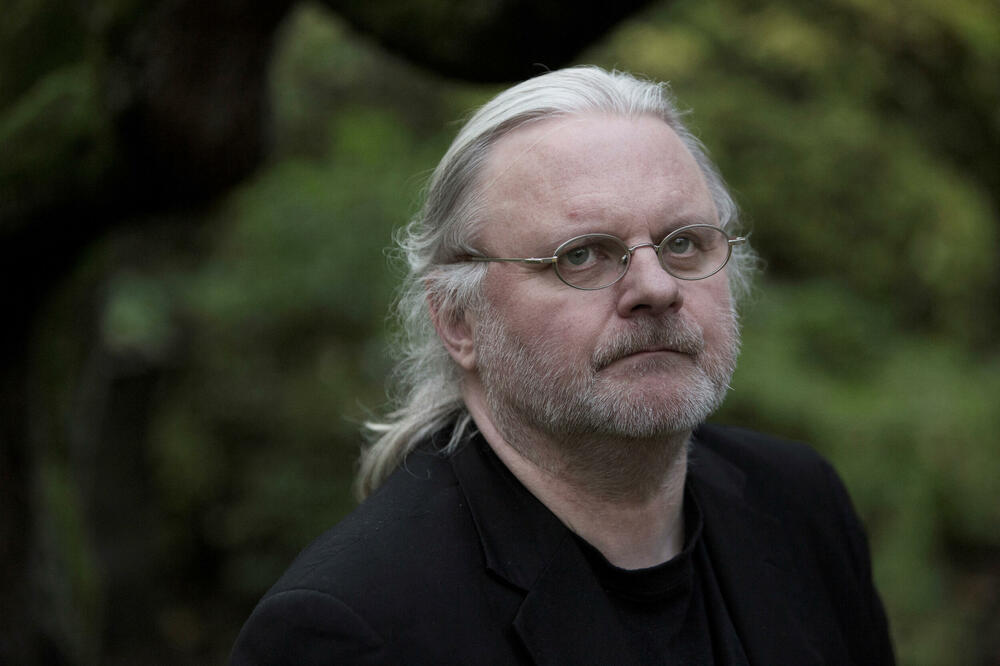Jun Fosse is an "old-fashioned" Nobel laureate. What does that mean? In this year's election, the all-too-often implied "logic of the message" was clearly absent, that is, what the general public calls "political" allocation.
Well, the prize didn't go to a great Russian woman (with a German address) Ludmila Ulicka (declared anti-Putinovka, not from yesterday), neither Salman Rushdie, and which was strongly supported by the voices that expected from Stockholm, first of all, support for "freedom of expression", however much it is a more complicated story today than in the heroic time of the conquest of public freedoms.
Of course, there is no doubt that the award to Ulica or Rushdi, or many other writers, would be equally deserved, but today, behind the authors who are serious candidates are the entire publishing machinery, so the campaigns to support writers have become increasingly banal and empty...
And that's why the Norwegian was a pure "literary" choice, devoid of any other supporting story. Hence the wording from the beginning - old-fashioned Nobel laureate. And that is not bad for the award itself, but also for current literature.
There is little that has not lost its importance, its specific weight, in the last thirty years. Look at the school, the police, or the (global, not just domestic) political scene - this time has brought dull blanks at the head of some of the most powerful countries in the world. It's not that it hasn't happened before, but it's never been so synchronized and devastating to the whole world. That is, that fragile idea of normality that we believe (naively, isn't it) that all people share.
In that total devaluation of everything and anything, the Olympics, the World Cup in football and - the Nobel Prize are still held.
You can see it by how the October news from Stockholm is expected, how the candidates are speculated for weeks, how the lists are made, the matter has even reached serious bookmakers.
The new laureate belongs to serious European literature, one of the first so-called. of "small" literature that broke that type of monopoly in the first half of the twentieth century. At that time, there was talk of a "Scandinavian literary boom", as in the second half of the century about a "Latin American literary boom". Writers like Ibsen, Strinberg, Hamsun they told some of the most important stories at that time. And the world, amazed, listened to them.
"If there was no literature, I would be an alcoholic or a lunatic," said Fose in a recent interesting interview for Zagreb's Jutarnji list. We are talking about an author who has been translated and is present in the countries of the region, and has been in the innermost circle of Nobel candidates for more than a decade.
Fosse is a writer who is not afraid of the so-called big questions nor does he shy away from big words. Death, Life, Faith, Freedom - these are all problems that his characters think about in detail. Those who are tired of the postmodern manner of ironizing and relativizing everything will find him a refreshing interlocutor.
One interesting detail. Namely, Fosse is the tenant of a special residence, actually a small royal castle that the Norwegian monarch decided to make available to the "greatest artist" of Norway. Fose is neither the first nor the last tenant, but everyone agrees that such an honor belongs to him.
No matter how impossible it is, I imagined such a mechanism, in Montenegro. I say impossible - because Montenegro never had a ruler who understood the role of an artist in that way, and the residential areas would certainly be overcrowded with "deserving" mobsters and businessmen... But, just for a moment, let's imagine. No artist would end up there - here it would undoubtedly be a matter of political expediency. So every government would "move in" a new "greatest". And there is no less literature with more great writers than Montenegrin.
As we can see, cultures in which agreement is possible on such matters are incomparably more serious cultures.
Bonus video:





